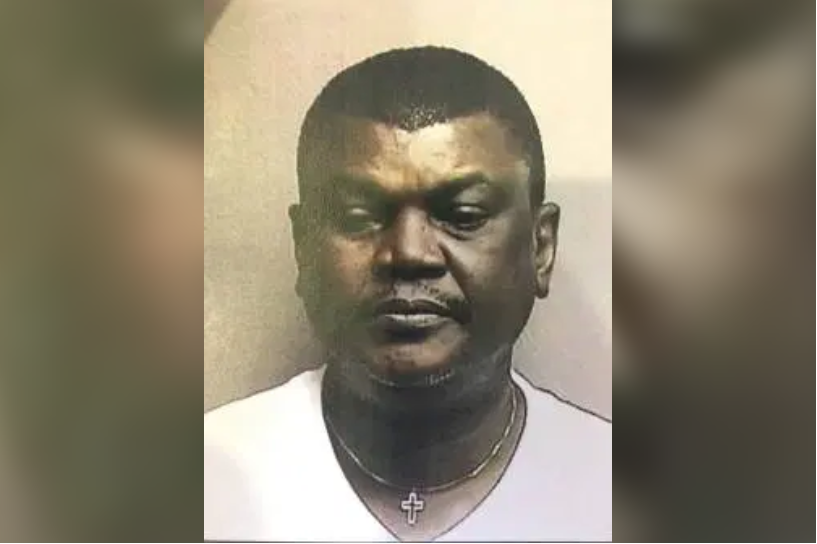A Nigerian sex offender who crossed into Canada at Roxham Road is appealing his extradition to the U.S. on the grounds he should be considered a refugee.

Adesanya Prince is wanted in Harris County, Texas, where he pleaded guilty to a charge of “promotion of child pornography” on Feb. 23, 2018, but fled to Canada before he was sentenced.
READ MORE: Nigerian man wanted in Texas on child pornography charges still detained in Canada
Prince is currently in custody in Canada, 19 months after he arrived via Roxham Road, the controversial unofficial border crossing south of Montreal. Last March, Justice Minister David Lametti ordered that Prince be returned to the U.S.
Yet in documents filed with Quebec’s Court of Appeal, Prince is fighting the extradition.
In the appeal, Prince’s lawyer, Marie-Hélène Giroux, raises three arguments.
She says the minister’s order should be quashed because it didn’t consider that if returned to the U.S., Prince might be deported to Nigeria. Giroux also argues the minister should have considered the conditions Prince would face in Texas prisons. And finally, she says the minister didn’t have the jurisdiction to determine Prince wasn’t a refugee under the United Nations 1951 Refugee Convention.
The federal government has yet to file a response to Prince’s request for the appeal. The Quebec Court of Appeals has not yet set a date, but may hear the case sometime this fall or winter.

Prince, 51, originally consented to extradition on Nov. 1, 2018. However, according to his lawyer, he later changed his mind. He remains in detention at a Canada Border Services Agency (CBSA) facility north of Montreal.
Prince walked across the border into Canada on March 9, 2018. He had pleaded guilty to a child pornography charge in Texas just days earlier and was out on a US$10,000 bond awaiting sentencing. Rather than show up for his sentencing hearing on May 10, 2018, Prince fled to Canada.
He faces a minimum of two years in prison.
READ MORE: Registered sex offender slipped into Canada through illegal Quebec crossing
Immediately after crossing the border, Prince was detained by RCMP officers stationed at Roxham Road. He was then turned over to CBSA agents for screening. It was during a security background check that agents found Prince was wanted in Texas on child porn charges.
According to court documents obtained by Global News, Prince is originally from Nigeria but had been living in Houston, Texas. The documents state that in January 2017, he was working as a security guard when he sent a co-worker three videos on a cellphone app. Two of the videos involved bestiality, while the third depicted the graphic sexual assault of a young girl aged two to four.
The co-worker told police that Prince also made unsolicited sexual advances towards her including, on two occasions, trying to grab her breasts.
The court documents include a letter from Harris County assistant district attorney Thomas Waddle. In it, Waddle states that Prince presents a danger to Canada and may have been attempting to flee to Nigeria.
“The timing of Prince’s flight demonstrates that he was attempting to avoid serving a sentence for the criminal acts to which we admitted guilt,” Waddle writes.

Prince agreed to be extradited to the U.S., signing a “consent to committal” and forfeiting the right to a committal hearing. The last step was for the federal justice minister to sign off on the extradition, which he did in March.
However, before the extradition took place, Prince changed his mind and filed an appeal of the minister’s decision.
Despite being a flight danger and a potential threat, at one point, Prince was released from custody and spent three days living on Montreal’s West Island.
Quebec Superior Court Justice Daniel Royer ordered Prince released on Aug. 2, 2018. The U.S. had filed an extradition request for the imposition of a prosecution, but as Prince had already pleaded guilty, the extradition request should have been for the imposition of a sentence.
Royer ruled that there was insufficient evidence presented at the hearing to hold Prince for prosecution and ordered him released.
The U.S. filed a new provisional arrest request three days later, and Prince gave himself up to police.
In registering a guilty plea in Texas last year, Prince was officially entered into the U.S. sex offender registry, a designation he will hold until the end of his life.




Comments